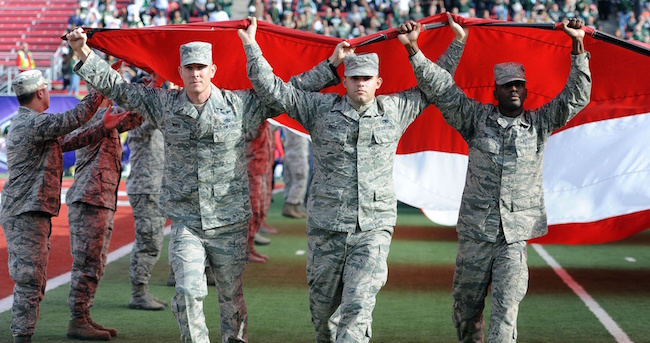Reflecting back on the SEC football season in the wake of September 11, 2001
Last week, Major League Baseball held a game at Baltimore’s Camden Yards with zero fans in attendance. The decision was made as a result of recent social unrest on the streets of Baltimore.
As the sports world discussed the strange sporting event, I reflected back to the 2001 college football season when the infamous September 11th attacks changed the sports calendar including the SEC football schedule.
When the attacks occurred on that Tuesday morning, the country was reeling, but sports officials and commissioners had to decide whether or not to play games in the immediate aftermath of such a tragic event.
Taking the lead from the NFL who indicated that games would be played during the coming weekend, the Southeastern Conference initially planned to do the same and allow the games to be played. The weekend slate of games included the marquee matchup of Florida vs. Tennessee (both ranked in the top ten nationally).
When the NFL made it official that the games would be cancelled, SEC Commissioner Roy Kramer and the SEC Presidents made a similar decision. The decision likely prevented a major bungle not unlike the famous Pete Rozelle mistake of allowing NFL games to occur in the immediate days following the assassination of John F. Kennedy.
SEC fans love their football, but sometimes football needs to be set aside. September 11, 2001 was indeed one of those times.
College football was not the only sport affected. Major league baseball cancelled games through September 16th and pushed its postseason back as a result of tacking on the cancelled games to the end of the regular season.
The NFL held its Super Bowl in early February for the first time ever as a result of similarly cancelled games and a delayed postseason.
Golf’s Ryder Cup was cancelled in the 9/11 aftermath and was rescheduled for 2002. The biennial event then took on a schedule of even-numbered years following 2002 – a change from decades of being played on odd-numbered years.
The entertainment industry faced a myriad of programming and filming adjustments in the wake of the tragedy. Major movies like Spiderman, Serendipity and Men In Black II had scenes modified or removed as a result. Movies with plots involving terrorism such as Spy Game and the Bourne Identity were adjusted considering the sensitive environment that followed the 9/11 attacks.
But eventually the sports and entertainment world got back to its usual rhythm.
The college football world restarted with a Thursday night SEC matchup pitting Mississippi State against South Carolina. The environment and the broadcast brought an emotional combination of patriotism and fanfare as fans displayed to a national audience that the American way of life would continue.
It is indeed difficult to watch the massive American flag on the field in Starkville and the loud “USA” chant in the crowds prior to kickoff without getting emotional. Who will ever forget the overwhelming sense of unity and patriotism that penetrated every aspect of American life during those days following 9/11?
As a young freshman at the University of Florida, the altered SEC schedule resulted in one of the most memorable experiences I can recall attending a SEC football game.
The Florida-Tennessee matchup had been rescheduled for the first Saturday in December (the SEC Championship Game was pushed back a week). Moving the intense rivalry game to the end of the season set the stage, but the stakes involved increased the stature of the game even more.
Heading into the game, Florida was ranked No. 2 nationally and the visiting Vols were ranked No. 6. The winner would win the division, play LSU in the SEC Championship Game and likely earn a spot in the national championship game. Despite both teams having equal 9-1 records, the Gators were more than a two touchdown favorite.
Of course, the Vols would execute one of the more memorable upsets of the BCS era led by the incredible performance of Tennessee RB Travis Stephens. Stephens would pile up 226 yards in front of a packed Ben Hill Griffin Stadium crowd expecting the Gators to cruise to victory.
Despite the fact that the victorious Vols would go on to lose to LSU in the SEC Championship Game, the game would receive more historical significance when Steve Spurrier resigned a month later.
The unusual December night matchup between Florida and Tennessee not only killed off Florida’s championship dreams for that season, but it marked Spurrier’s last coached game in the Swamp as the Florida head coach. It also marked the end of the Fulmer-Spurrier rivalry which captivated the south for much of the previous decade.

